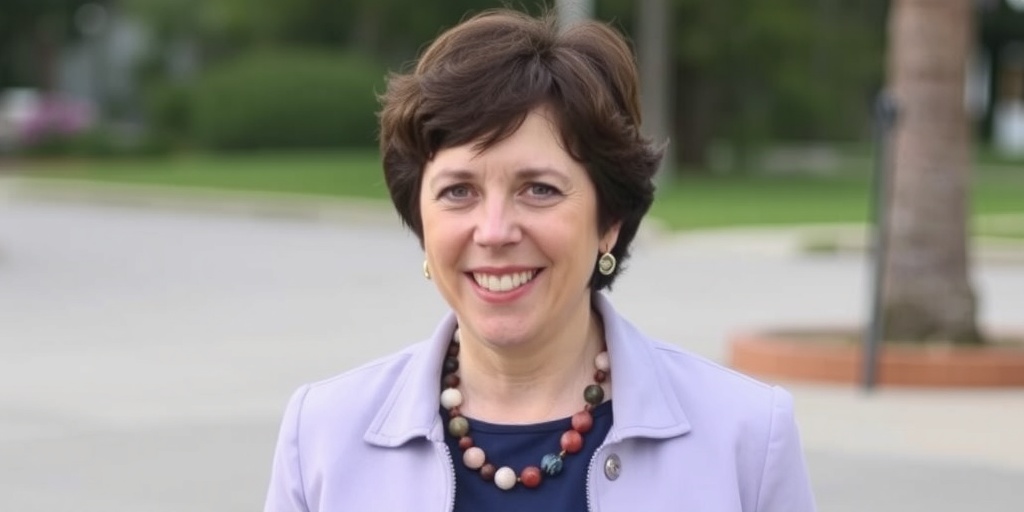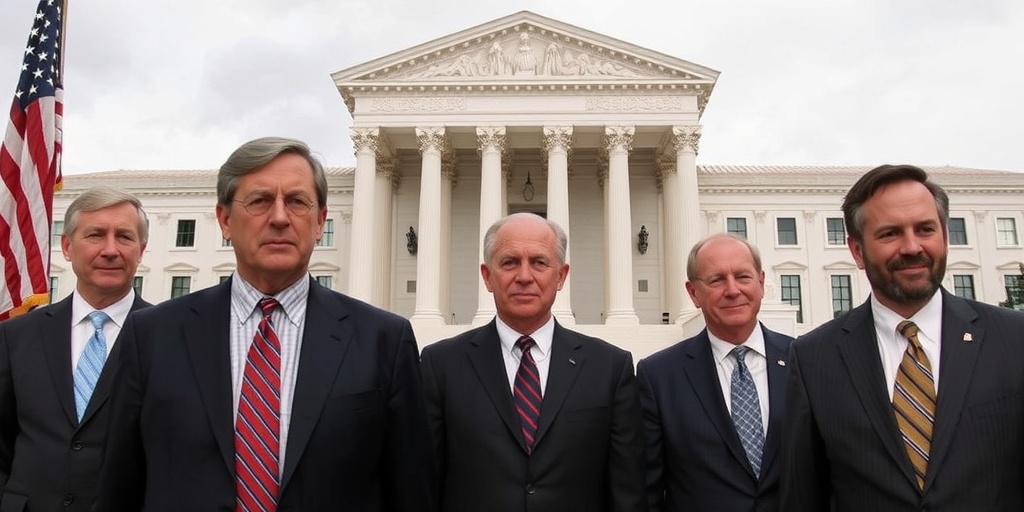Now Reading: Katie Porter Announces Run for California Governor
-
01
Katie Porter Announces Run for California Governor
Katie Porter Announces Run for California Governor

Katie Porter Announces Run for California Governor in 2026
Katie Porter, the former Democratic congresswoman known for her fiery interrogations of corporate executives on Capitol Hill, has officially declared her candidacy for the 2026 California gubernatorial race. This announcement comes as Porter, 51, enters a highly competitive field of candidates, making her the most recognizable Democrat seeking the governorship thus far.
One of the most significant uncertainties in the race is the potential candidacy of former Vice President Kamala Harris. Harris, who returned to her roots in Los Angeles after her presidential campaign, has been weighing a run for governor. Porter’s team has confirmed that she would withdraw from the race if Harris decides to run, indicating the political weight that Harris carries within the Democratic Party. In fact, Porter acknowledged in December that Harris would have a “near field-clearing effect on the Democratic side” of the race, should she choose to enter.
Currently, California Governor Gavin Newsom is not eligible for re-election due to state law limiting governors to two terms. As a result, the Democratic field is open, with several candidates having announced their campaigns. Many of these candidates are current or former state officials with extensive political experience but lack the public recognition that Porter enjoys. As a law professor who served six years in Congress representing Orange County, Porter has a well-established rapport with California voters, underscored by various polling data.
Earlier this week, Porter launched her gubernatorial campaign with a video that paints her as a reformer ready to counteract the policies and agendas associated with Donald Trump. In her announcement, she expressed her intention to bring a “fresh lens” to the California State Capitol, even though she has never held a state-elected office before. The frugal kitchen setting of the video, where Porter is seen alongside her daughter, connects with voters on the economic struggles faced by everyday Californians, particularly concerning escalating costs related to groceries, healthcare, and housing.
Porter’s prior electoral experiences are not without their difficulties. In 2024, she lost her bid for the Senate seat previously held by Dianne Feinstein, who passed away in 2023. Porter participated in a competitive open primary where she ultimately finished third. Despite some early momentum in polls that positioned her to potentially face off against Adam Schiff—a fellow Democratic House member who consistently led in surveys—she was significantly outspent in the final months of the race. The competition intensified as Schiff’s campaign focused advertising efforts on Steve Garvey, a former baseball star and newcomer to politics, who ultimately finished second in the primary ahead of Porter.
In the wake of her Senate campaign, Porter characterized her experience as part of a larger trend of wealthy donors influencing election outcomes. After her defeat, she criticized “an onslaught of billionaires spending millions to rig this election,” a statement that drew backlash from some within her party, who felt it echoed Trump’s rhetoric about election integrity. Ultimately, Porter expressed regret over her choice of words but stood firm on her position that the race was heavily impacted by tech investors and crypto executives who contributed extensively to Schiff’s campaign.
Throughout her political journey, Porter has frequently highlighted her experience as a single mother raising three children in a high-cost state like California. This populist message resonates with many voters struggling with similar issues. Her personal experiences, combined with her vigorous advocacy for economic reform, have become pivotal themes in her political narrative, which she aims to carry into her gubernatorial campaign.
In her recent campaign launch video, Porter reiterated her commitment to actively combat challenges posed by Trump that negatively impact Californians. She voiced her determination to advocate for disaster relief, community rights, and working families, aligning herself as a protector of the needs of her constituents.
First elected to Congress in 2018, Porter flipped a Republican-held seat during the Democratic "blue wave" that regained control of the House. She was re-elected twice before shifting her focus to the Senate race. Since the conclusion of that campaign, she has returned to academia, teaching law at the University of California, Irvine.
As the race for California’s governorship heats up, Katie Porter positions herself as a formidable candidate, balancing her populist platform with her experience and public appeal. Voter sentiment and the long-term implications of other candidates’ decisions—particularly Harris’ potential involvement—will undoubtedly shape the dynamics of this gubernatorial contest leading up to the election.
Stay Informed With the Latest & Most Important News
Previous Post
Next Post
-
 01New technology breakthrough has everyone talking right now
01New technology breakthrough has everyone talking right now -
 02Unbelievable life hack everyone needs to try today
02Unbelievable life hack everyone needs to try today -
 03Fascinating discovery found buried deep beneath the ocean
03Fascinating discovery found buried deep beneath the ocean -
 04Man invents genius device that solves everyday problems
04Man invents genius device that solves everyday problems -
 05Shocking discovery that changes what we know forever
05Shocking discovery that changes what we know forever -
 06Internet goes wild over celebrity’s unexpected fashion choice
06Internet goes wild over celebrity’s unexpected fashion choice -
 07Rare animal sighting stuns scientists and wildlife lovers
07Rare animal sighting stuns scientists and wildlife lovers





















